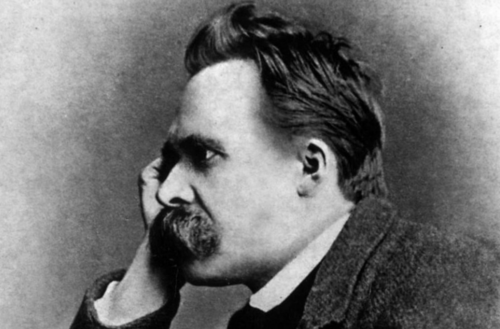The Philosophy of Freedom: Free Will Vs. Determinism

Being free seems to be an unquestionable fact. However, specifying a concept in this regard may imply a vague answer. Philosophy reflects a lot on freedom, and based on it, in this article, we’ll propose answers to the question. In addition, we’ll talk about free will and determinism.
Philosophers have discussed freedom extensively so that their arguments would be enlightening when establishing a position regarding the phenomenon of freedom. Let’s get started
Those who live in fear will never be free.
What’s freedom according to philosophy?

The history of philosophy shows that even today, there’s no absolute consensus regarding what freedom is. However, it’s possible to highlight characteristics that help clarify this issue.
First of all, we can take a look at its etymology. The word freedom comes from the Latin word libertas, which means “the condition of the man who is free.” That is, it refers to the citizen who is autonomous. This notion is closely associated with the conception of Aristotle as a political animal.
According to this philosopher, freedom is the ability that human beings have to decide autonomously through reason. It’s political freedom to the extent that we can participate in social life as long as we’re not deprived of it, as is the case of slaves and subjects.
Therefore, it can be said that the philosophy of freedom considers this concept to be a natural faculty, a condition, or a state that’s proper to the human being. In this way, we enter the dispute between the notions of free will and determinism. What do they mean? Why is it a dispute? Does this debate have a solution? Let’s investigate.
Free will: A perspective from the philosophy of freedom
According to the Standford Encyclopedia of Philosophy, free will is a philosophical concept that’s used to refer to the ability that human beings have to choose from various alternatives. In other words, for philosophy, it’s about freedom of choice without any kind of precondition to guide the decision.
This term, thus considered, is problematic for several philosophers. One of them, Baruch Spinoza, argues that the freedom we believe we have shouldn’t be reduced to the ability to decide.
This is so because we can know the motives that guide our desires but not the causes that determine action. In this regard, desire or wanting can’t be the only cause of our freedom. There must be something deeper.
Despite this caveat that Spinoza makes, ancient philosophers like Plato and Socrates defend freedom in their own way.
That thing is called free, which exists solely by the necessity of its own nature, and of which the action is determined by itself alone.
Plato’s understanding of freedom
Aristotle wasn’t the only ancient philosopher who related freedom to the nature of the individual and his social role. An article published by Archai Magazine maintains that for Plato, freedom has to do with self-control and with the fulfillment of desires according to the social place they occupy in the city.
In this regard, Plato defends the idea that freedom is in the rational domain of our irrational desires. Furthermore, true freedom resides in the rational fulfillment of the desires that correspond to us, according to the place we occupy in the city.
So, it wouldn’t make sense to want to govern when our role is to be shoemakers. We must remember that, for this philosopher, society is divided into classes that come by nature. In other words, we occupy the place that corresponds to us by said nature.
The Socratic conception of freedom
Socrates’ concept of freedom is similar to Plato’s, although with a fundamental difference. In this regard, the journal Ensayos: Revista de la Facultad de Educación de Albacete maintains in an essay that freedom for this philosopher has to do with self-control and autarky.
Regarding self-control, it’s about the subject controlling themself and not letting themself be carried away by pleasures, impulses, or bodily needs. This demands great knowledge and personal control.
At the same time, autarky refers to autonomy: We don’t need anything external and superficial in order to live. In this regard, we’ll be truly free, as we don’t have empty needs, the result of our own self-control.
Determinism and its implication regarding the philosophy of freedom
The journal Revista de Artes y Humanidades UNICA alleges in an article that in this way of conceiving freedom, there are causes that are alien to us that determine our actions. This position is nourished by physics and its claim that there are predetermined laws that are independent of human beings.
In this regard, we couldn’t be completely free beings because there are causes that precede us and determine the course of action.
This perspective isn’t founded only on physics. Philosophy has two positions to consider the world: The dualism and the monisticism. Dualism refers to the division between subject and world; that is, I exist, but there’s also something that isn’t me and works according to its own laws. On the other hand, in monism, there’s a unity between these two separate poles, denying or erasing the contrasts between them.
Determinism, then, is situated in the monistic position: We’re determined by causal laws of nature. However, what about the subject? Does it not have something to contribute to this determining nature?

Nietzsche’s Determinism
The German philosopher Friedrich Nietzsche has a particular conception of freedom that doesn’t entirely adhere to determinism but certainly denies free will. The journal Veritas Revista de Filosofía y Teología shared a publication indicating that for Nietzsche, it’s society that determines the general norm of freedom; one speaks of determinism.
However, the philosopher opposes this determination of freedom imposed by society, as it prevents the development of the true freedom of the human being. For Nietzche, this idea or notion means being our own creators. In other words, being free is thinking and speaking for ourselves and not based on the opinions that others express.
Therefore, we can say that for the German philosopher, our social freedom is restricted, while true freedom resides in us and not in others.
For what is freedom? That one has the will to assume responsibility for oneself. That one maintains the distance which separates us. That one becomes more indifferent to difficulties, hardships, privation, even to life itself.
-Friedrich Nietzche-
So, does freedom mean free will or determinism?
We can’t establish a clear answer to this question. Philosophers continue to debate this question to what seems to be no end. However, we can take away from all that has been said that our freedom is a fact.
Whether we consider it in a restricted sense, pointing to forces that are outside of us, or focus on the ability to decide the course of our actions, we have freedom. The nuances are important, but reflecting on it in a society that seems to demand more and more of us can give us a bit of peace of mind.
All cited sources were thoroughly reviewed by our team to ensure their quality, reliability, currency, and validity. The bibliography of this article was considered reliable and of academic or scientific accuracy.
- Andrade, G. (2022). El problema del libre albedrío. Revista de Artes y Humanidades UNICA. https://revistas.unicaedu.com/index.php/ahu/article/view/21
- Ariza, S. (2017). The concept of freedom in Plato’s Republic. Revista Archai: Revista de Estudos Sobre as Origens do Pensamento Ocidental. https://go.gale.com/ps/i.do?id=GALE%7CA595025196&sid=googleScholar&v=2.1&it=r&linkaccess=abs&issn=21794960&p=IFME&sw=w&userGroupName=anon%7Eaca4f8bc&aty=open+web+entry
- Blanco Mayor, C. (2001). Sócrates y los socráticos menores. Revista de la Facultad de Educación de Albacete, 16, 11-32. https://dialnet.unirioja.es/servlet/articulo?codigo=2282601
- Martínez Becerra, P. (2006). Libertad y sociedad en el pensamiento de Nietzsche. Veritas. Revista de Filosofía y Teología. https://scholar.googleusercontent.com/scholar?q=cache:tmgu5Y2zPpMJ:scholar.google.com/+libertad+y+sociedad+en+el+pensamiento+de+nietzsche&hl=es&as_sdt=0,5
- Steiner, W. (1978). La filosofía de la libertad. Editorial Rudolf Steiner. https://scholar.googleusercontent.com/scholar?q=cache:emYIlRH0_4EJ:scholar.google.com/+filosofia+de+la+libertad&hl=es&as_sdt=0,5
- O’Connor, T., Franklin, C. (2010). Free Will. The Stanford Encyclopedia of Philosophy. https://plato.stanford.edu/archives/fall2014/entries/freewill/#Bib
This text is provided for informational purposes only and does not replace consultation with a professional. If in doubt, consult your specialist.








